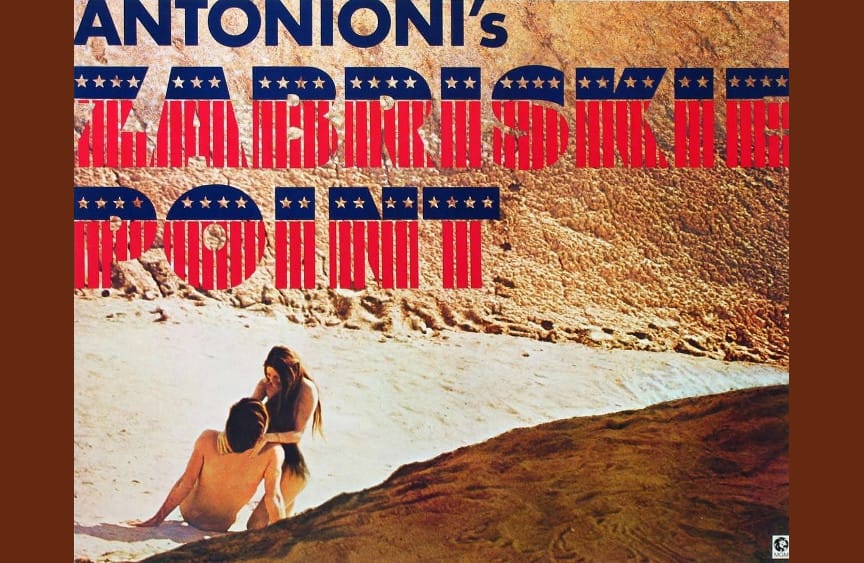Antonioni’s “Zabriskie Point”: a terrible, senseless and fascinating film.
A truly awful film that even its star denounced as "a big lie," Antonioni's bizarre 1970 counterculture epic has some interesting implications.

I’m a firm believer that bad movies have a place in our culture and our lives. If you’re a film buff you can’t expect to like everything you see, but that’s not necessarily a bad thing, and I think we can learn a lot from truly terrible films. On my old blog I used to do article-length profiles on this blog about bad movies (Last Tango in Paris and The Room among them). I think that, at least sometimes, deconstructing what’s wrong with a bad film is more illuminating than praising one that works.
Such is true of Michelangelo Antonioni’s 1970 crap-fest Zabriskie Point which I saw again not long ago, my second watch-through in a couple of years. This film, notorious for its epic critical and box-office failure, was one of the most disastrous Hollywood productions of the counterculture era, doing lasting damage to the careers and lives of several people involved in it. It’s a really bad film, but it’s an extremely well-made bad film, hypnotic in its own right even as it alienates the viewer with its cynicism and infuriates them with its utter refusal to make any sense. As terrible and misconceived as it is, Zabriskie Point is oddly satisfying, and endlessly fascinating. I enjoy the film in a perverse sort of way.


